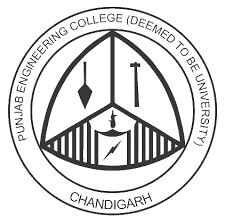Unlock a promising career in environmental engineering. Contribute to sustainability, pollution control, and environmental protection. Enjoy career growth in research, consultancy, government agencies, and environmental organizations.
Future Scope & Benefits of M.Tech in Environmental Engineering
Environmental Engineering is a field that holds immense significance in today's world as it focuses on addressing pressing environmental challenges and promoting sustainability. Pursuing an M.Tech degree in Environmental Engineering offers not only a promising career but also an opportunity to make a positive impact on the environment. In this comprehensive guide, we will delve into the future prospects and the benefits of choosing an M.Tech in Environmental Engineering as your academic path.
Future Scope of M.Tech in Environmental Engineering
Environmental Sustainability: As the world faces escalating environmental concerns, the demand for environmental engineers is expected to grow. These professionals will play a pivotal role in developing sustainable solutions for mitigating pollution, conserving resources, and managing waste.
Water Resource Management: The management and conservation of water resources are critical for the future. Environmental engineers specializing in water resource management will be involved in designing efficient water supply systems, wastewater treatment plants, and strategies for water conservation.
Renewable Energy Integration: Environmental engineers will have opportunities in the renewable energy sector, where they can work on projects related to solar, wind, and hydropower generation. Integration of renewable energy sources into existing systems will be a key focus.
Climate Change Mitigation: Environmental engineers will contribute to climate change mitigation efforts by developing technologies and strategies for reducing greenhouse gas emissions, enhancing carbon capture, and promoting energy efficiency.
Environmental Impact Assessment: Industries and projects will require environmental impact assessments to evaluate their effects on the environment. Environmental engineers will be involved in assessing and mitigating these impacts.
Environmental Compliance: Regulatory compliance with environmental laws and standards will continue to be a priority. Environmental engineers will help organizations adhere to these regulations while minimizing their environmental footprint.
Air Quality Management: The need for clean air is paramount. Environmental engineers specializing in air quality management will work on strategies to reduce air pollution, improve indoor air quality, and monitor emissions.
Solid and Hazardous Waste Management: As waste generation continues to rise, environmental engineers will develop innovative methods for waste disposal, recycling, and managing hazardous materials.
Green Building Design: Environmental engineers will be involved in designing sustainable and energy-efficient buildings that have minimal environmental impact throughout their lifecycle.
Eco-friendly Transportation: Transportation systems are a major source of pollution. Engineers will work on developing eco-friendly transportation technologies, such as electric vehicles and efficient public transport systems.
Benefits of Pursuing M.Tech in Environmental Engineering
High Demand: Environmental engineers are in high demand due to growing environmental concerns and regulations. Graduates can expect favourable job prospects.
Environmental Impact: Professionals in this field have the opportunity to contribute significantly to environmental conservation and sustainability.
Diverse Career Options: Environmental engineers can work in various sectors, including government agencies, consulting firms, research institutions, and industry.
Interdisciplinary Skills: The program equips graduates with interdisciplinary skills in engineering, chemistry, biology, and environmental science.
Problem Solving: Environmental engineers are trained to analyze and solve complex environmental problems, making them valuable assets to organizations.
Competitive Salaries: Due to their specialized knowledge, environmental engineers often command competitive salaries.
Global Relevance: Environmental issues are global, providing opportunities for international career prospects and collaborations.
Career Stability: The field of environmental engineering is stable, offering long-term career opportunities.
Positive Impact: Environmental engineers can make a tangible and positive impact on society and the planet.
 2 Years
2 Years
 Post Graduate
Post Graduate
 Engineering
Engineering
 Full Time
Full Time





















 back
back